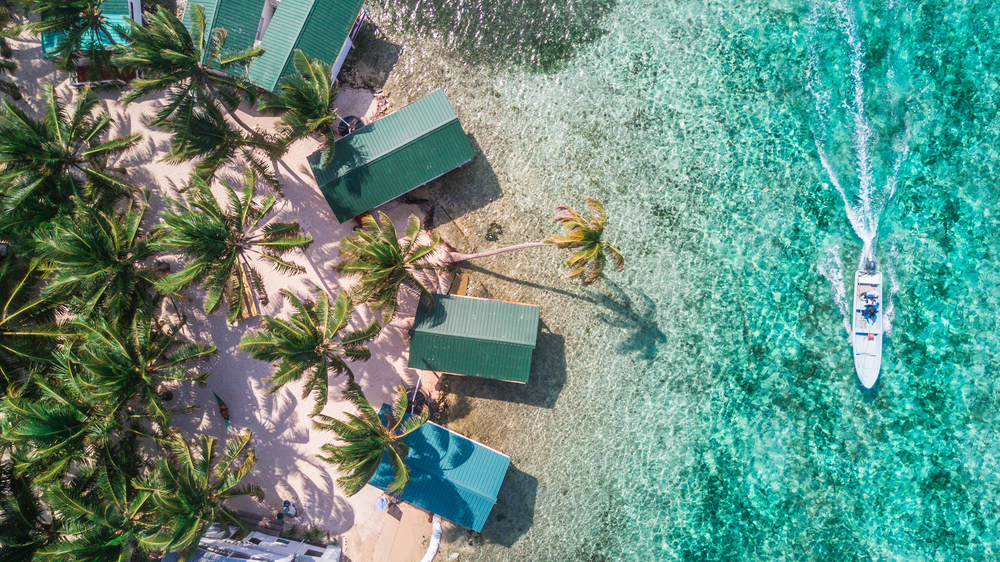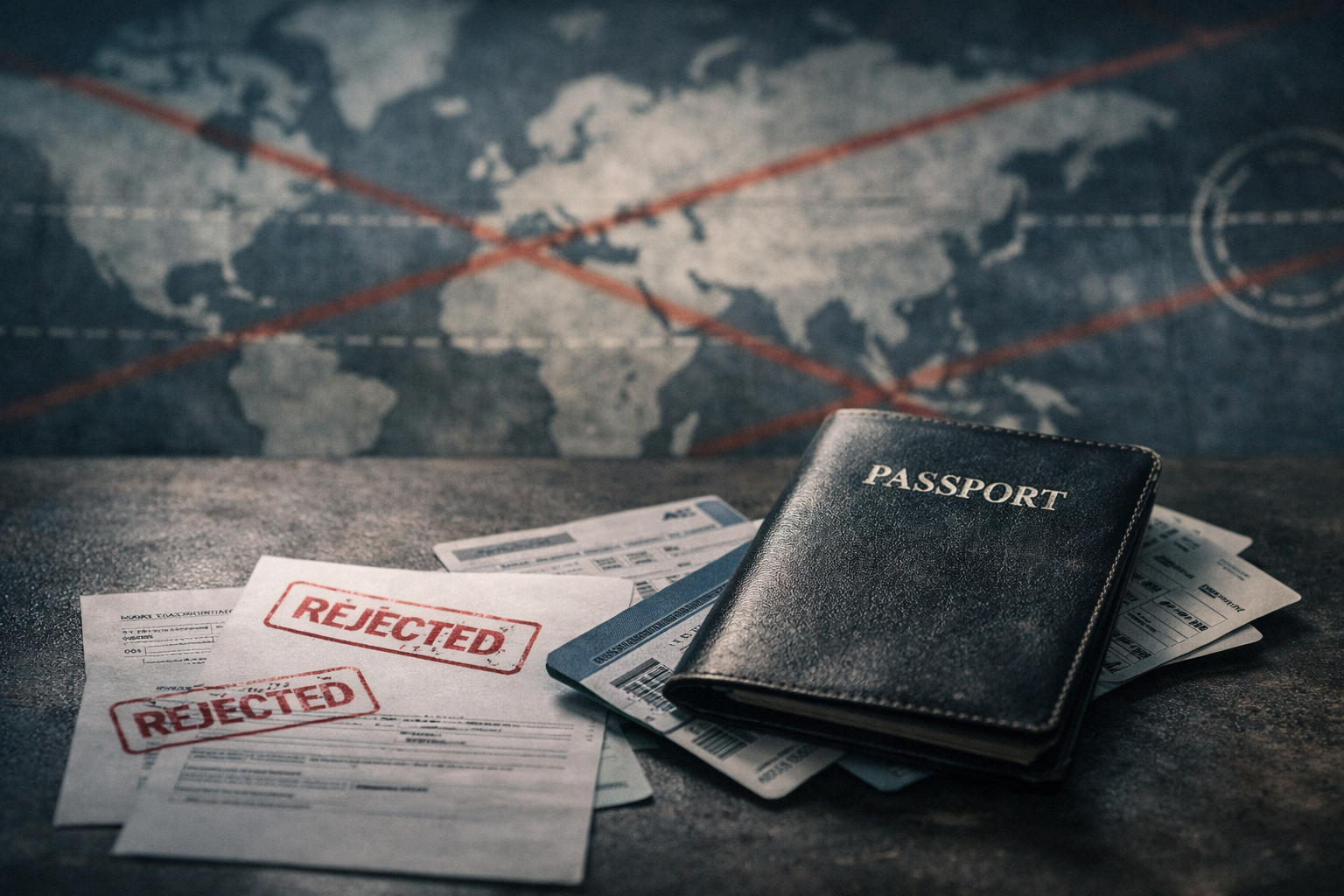Living in Belize: Complete Guide for Expats & Investors

- Why Choose Belize for Expat Living?
- Belize Residency Requirements and Options
- Cost of Living in Belize
- Best Places to Live in Belize
- Investing in Belize Real Estate
- Belize Tax System for Expats
- Healthcare and Education in Belize
- Working and Business Opportunities
- Lifestyle and Culture in Belize
- Practical Tips for Moving to Belize
- Need Help?
- FAQ
Living in Belize is no longer a niche choice for retirees or adventurers. With its English-speaking population, Caribbean coastline, and flexible residency pathways, Belize is quickly becoming one of the most attractive destinations for expats and international investors looking for simplicity, opportunity, and tropical ease.
Whether you’re seeking a full-time lifestyle shift, a smart retirement plan, or a low-stress base in Central America, Belize offers a unique mix of access, affordability, and freedom. This guide breaks down everything you need to know, from residency options to real estate to daily life, to help you decide if Belize is your next strategic move.
Why Choose Belize for Expat Living?
Benefits of Living in Belize
Belize checks many boxes for expats and globally mobile individuals looking for a fresh start in a stable and scenic location. English is the official language, which immediately removes the language barrier many face when relocating abroad. The country also offers a laid-back Caribbean lifestyle with an approachable pace of life, friendly locals, and relatively simple legal and financial systems.
From a strategic standpoint, Belize is attractive for those seeking a tax-efficient jurisdiction. With no capital gains tax, no inheritance tax, and no wealth tax, Belize appeals to investors looking to protect their assets while enjoying the benefits of tropical living.
Belize Lifestyle Overview
Daily life in Belize revolves around the outdoors. Whether you’re on the beach in Placencia, snorkeling in the Belize Barrier Reef, or exploring inland jungles, Belize offers an abundance of natural beauty and ecological richness. The climate is warm year-round, making it ideal for those craving sunshine and sea breezes.
At the same time, modern conveniences are accessible in most urban and coastal centers. While Belize is not as developed as places like Panama or Costa Rica, it provides an appealing balance between nature and infrastructure.
Expat-Friendly Features
Belize continues to grow as one of the most approachable destinations in Central America for foreign residents. The Belize expat communities in Ambergris Caye, Corozal, and Placencia are thriving, with newcomers finding it easy to integrate and access essential services.
Additional expat-friendly features include:
- Straightforward banking system
- Easy access to international airports
- Local familiarity with foreign investors
- A legal system rooted in British Common Law
Together, these features make living in Belize both practical and low-friction for those relocating from North America or Europe.
Belize Residency Requirements and Options
Qualified Retired Persons (QRP) Program
The QRP visa Belize program is one of the most attractive retirement residency pathways in the Caribbean. It allows individuals aged 45 and older to gain legal residency by proving a monthly income of at least USD 2,000 from a pension or retirement fund.
Key benefits of the QRP include:
- No import duties on household goods and vehicles
- Fast-tracked residency process
- Permission to reside in Belize year-round without local taxation on foreign income
While this program is designed for retirees, it’s also suitable for those with remote income streams looking to relocate early and enjoy a Belize retirement lifestyle with financial benefits.
Permanent Residency in Belize
For those not qualifying for the QRP, Belize permanent residency is still highly accessible. Applicants must spend 50 consecutive weeks in Belize before applying and show proof of self-sufficiency or income. Unlike the QRP, permanent residents are allowed to work or start a business in Belize.
This option is especially popular with entrepreneurs and expats who want full flexibility, including the ability to operate in the local economy.
Citizenship Requirements
After five years of permanent residency, individuals may apply for Belizean citizenship, provided they meet residency and good character criteria. Belize allows dual citizenship, and naturalized citizens enjoy the same rights as native-born Belizeans, including property ownership, work permissions, and visa-free travel to over 100 countries.
While citizenship is not automatic, it remains a realistic goal for long-term expats who plan to establish deeper roots in Belize.
Cost of Living in Belize
Housing and Real Estate Prices
One of the key advantages of living in Belize is the affordability of real estate compared to other Caribbean nations. Housing costs vary significantly based on location — beachfront property in Ambergris Caye will obviously cost more than an inland home in Cayo, but overall, property prices remain accessible.
- In popular expat hubs like Ambergris Caye, a modern two-bedroom condo near the beach may range from USD 250,000 to 500,000.
- In inland areas like San Ignacio or Corozal, homes can be found starting at USD 80,000 to 150,000.
- Rentals vary from USD 400 to 800/month for modest homes inland, to USD 1,500+ in tourist hotspots.
Property taxes are low, and foreign ownership is permitted with full title, making Belize property investment attractive for both primary residence and rental income potential.
Daily Expenses Breakdown
Basic expenses in Belize are affordable, especially if you adapt to local lifestyle habits. Imported goods come with higher costs, but day-to-day spending remains manageable.
- Groceries: USD 200–300/month for a couple, using a mix of local and imported products
- Dining out: USD 5–10 for a local meal, USD 15–30 at expat-style restaurants
- Utilities: Around USD 100–200/month, depending on AC usage
- Internet: USD 50–70/month, with improving coverage in most regions
Those adjusting to local norms can enjoy a very comfortable lifestyle for under USD 2,000/month.
Healthcare Costs
Belize offers a combination of public and private healthcare. While public hospitals are free or very low-cost for residents, most expats opt for private clinics or international hospitals for better service and faster access.
- Doctor visit (private clinic): USD 25–50
- Dental cleaning: USD 30–70
- Health insurance: USD 100–200/month, depending on age and coverage
Though healthcare in Belize isn’t as advanced as in neighboring Mexico, many expats pair local care with occasional travel to nearby countries for complex procedures.
Transportation Expenses
Transportation is simple and low-cost. Cars can be imported under the QRP visa Belize or bought locally, but many expats in smaller communities rely on golf carts, bikes, or walking.
- Gasoline: Around USD 5–6/gallon
- Local bus fare: USD 1–5 depending on route
- Used car: USD 8,000–15,000, though options are limited
- Golf cart rental (Ambergris Caye): USD 300–500/month
For most, transportation is a minor part of living costs in Belize.
Best Places to Live in Belize
Ambergris Caye
The most famous and arguably the most developed expat destination in the country, Ambergris Caye combines Caribbean beach living with a strong, well-established expat scene. San Pedro, the island’s main town, offers a mix of modern conveniences and tropical charm.
Pros:
- Beautiful beaches and marine life
- Active social life, especially among retirees and digital nomads
- Higher-end dining, shopping, and housing options
Considerations:
- Higher cost of living
- Heavy tourism presence during high season
Placencia
Located in southern Belize, Placencia offers the same laid-back beach vibe as Ambergris Caye, but with a quieter and more residential feel. The expat community here is strong and growing, especially among those seeking Belize retirement options.
Pros:
- Slower pace of life
- Affordable beachfront properties
- Boutique shops, eco-tourism, and wellness culture
Considerations:
- More remote, with limited healthcare access
- Infrastructure is improving, but still catching up
Belize City
Belize City is the country’s commercial and transport hub. While it isn’t typically the first choice for long-term expat living, it’s worth considering for business owners or those needing direct access to embassies, logistics, and government offices.
Pros:
- Closest thing to an urban center
- Access to major services and international travel
- Lower real estate costs compared to tourist hubs
Considerations:
- Higher crime in some areas
- Not ideal for beachfront or tranquil living
Cayo District
For those who prefer the jungle over the beach, Cayo District in western Belize offers lush landscapes, eco-living, and abundant nature. Towns like San Ignacio attract off-grid enthusiasts, wellness-focused expats, and remote workers.
Pros:
- Extremely affordable land and housing
- Vibrant local culture, farmers markets, and nature reserves
- Strong appeal to sustainability-minded expats
Considerations:
- Limited access to high-end amenities
- Hot and humid inland climate
Corozal
Located near the Mexican border, Corozal is often chosen by expats who want proximity to Mexico’s medical and retail facilities, while enjoying the lower costs of Belize.
Pros:
- Quiet, peaceful atmosphere
- Border access for shopping, healthcare, and travel
- Lower real estate prices
Considerations:
- Fewer entertainment options
- Smaller expat community
Investing in Belize Real Estate
Property Ownership Rules
Belize stands out in the region for its openness to foreign property ownership. There are no restrictions on foreigners owning land or property, and full title is available under the same terms as Belizean citizens. This transparency, rooted in the country’s British Common Law system, makes the Belize real estate market more secure and predictable than many of its neighbors.
Investors can hold land in their name or through a Belize-registered company. There is no need for a local partner, and foreign ownership of beachfront and island property is permitted, though zoning and environmental regulations apply.
Popular Investment Areas
The most active zones for Belize property investment include:
- Ambergris Caye: The epicenter of tourism and expat real estate. Condos, beach villas, and boutique hotels dominate the market here, with prices on the higher end but strong rental returns.
- Placencia: A growing hotspot for eco-conscious buyers, retirees, and developers seeking more land at lower prices than Ambergris.
- Cayo District: Popular with off-grid and sustainable living investors. Plots for development and agricultural use are affordable and increasingly in demand.
- Corozal: Near the Mexican border, Corozal attracts buyers who want affordable Caribbean living with access to modern services in nearby Chetumal, Mexico.
- Belize City: Though less scenic, the city remains the economic center. Commercial property, apartment buildings, and long-term rentals offer unique upside.
Real Estate Market Overview
The Belize real estate market is still emerging, with limited inventory and steady demand from North American and European buyers. Appreciation has been strong in coastal areas, and while the market isn’t as mature as Costa Rica or Panama, it offers more room for early-stage growth.
Foreign buyers typically purchase in cash, as mortgage financing is difficult to obtain unless using international lenders. Title verification and proper legal guidance are crucial, especially in more rural or less-developed areas.
Investment Opportunities
Opportunities span short-term vacation rentals, residential developments, and commercial tourism assets like hotels and dive shops. Land banking — purchasing undeveloped land with long-term value growth — is also a popular strategy.
With the rise of Belize expat communities, there’s growing demand for service businesses: coworking spaces, healthcare clinics, eco-tourism lodges, and food and hospitality ventures. Investors with long-term vision can tap into this underserved, high-growth segment.
Belize Tax System for Expats
Tax Benefits
Belize is often cited as a tax haven, and while it isn’t fully tax-free, it does offer one of the more favorable tax environments in the Caribbean. Its territorial tax system means that income earned outside Belize is not subject to local taxation, making it a strategic base for remote workers, international entrepreneurs, and retirees with offshore income.
This is especially relevant for holders of the QRP visa Belize, who are exempt from several forms of taxation and import duties.
Income Tax Regulations
Belize applies income tax only to revenue generated within its borders. Salaries, business income, and other earnings inside Belize are taxed at a flat rate of 25%. However, expats who don’t derive local income are not required to file or pay income tax.
There is no capital gains tax or estate tax, and offshore income is completely excluded from reporting.
Property Tax Considerations
Property taxes in Belize are extremely low. Rates vary by district, but most properties incur annual taxes between USD 100–500, depending on size, use, and location. Unimproved land is taxed at even lower rates, often under USD 50 annually.
This low holding cost makes Belize property investment especially attractive for long-term buyers and land bankers who do not want to incur yearly losses.
Business Tax Structure
Business taxes depend on industry and structure. Belize applies a gross revenue tax instead of corporate income tax for many sectors, with rates ranging from 1.75% to 6% depending on the nature of the business.
For example:
- Professional services: 6%
- Hotels and restaurants: 1.75–3%
- Rental income: 3%
Many expats operating businesses in Belize work through International Business Companies (IBCs), which can be structured to avoid local taxation if no income is generated within Belize. Legal structuring is essential here, and tax guidance is strongly recommended.
Healthcare and Education in Belize
Medical Facilities and Services
Healthcare in Belize is a mix of public and private providers. The public system is underfunded and may not meet the expectations of all expats, particularly those used to Western standards. That said, private clinics in urban areas and expat centers like San Pedro and Placencia are affordable and offer decent care for routine needs.
For major procedures, most expats travel to Mexico, Guatemala, or the United States. However, Belize is seeing growth in small-scale medical tourism, and new clinics are gradually improving local access.
International Schools
For families considering living in Belize with children, education is a key factor. Belize has a number of international schools, particularly in Belize City, Cayo, and Ambergris Caye. These schools often follow U.S., British, or International Baccalaureate (IB) curricula and are taught in English.
Tuition ranges from USD 2,000–10,000/year, depending on the school and grade level.
Education System Overview
Belize’s national education system follows a British model, with primary and secondary school divided into standard levels. Public education is free but under-resourced. Most expats prefer private or international options for higher standards, extracurricular access, and better facilities.
While university options within Belize are limited, students often transition to institutions in the U.S., Canada, or elsewhere in the Caribbean.
Working and Business Opportunities
Starting a Business in Belize
Starting a business in Belize is relatively straightforward. Foreigners can own 100% of local companies, and business registration is simple through the Belize Companies and Corporate Affairs Registry. Certain sectors may require licensing, especially those in tourism or real estate.
Popular small business types include:
- Vacation rentals and property management
- Restaurants and cafes
- Tour operations and diving companies
- Health and wellness services
- IT and consulting firms
The business culture is relaxed but highly relationship-driven. Building local networks and aligning with Belizean staff or partners can smooth operations and help with regulatory matters.
Work Permits
Expats wishing to work in Belize must apply for a work permit, unless they have permanent residency or are working under a QRP visa (which does not allow local employment). Work permits are generally tied to a specific employer and must be renewed annually.
Permits cost approximately USD 1,000/year, depending on the position and applicant nationality. Skilled professionals in finance, tech, and tourism are more likely to be approved.
Popular Industries
Beyond tourism and real estate, Belize is seeing quiet growth in:
- Agriculture and agro-processing
- Aquaculture and seafood exports
- Green energy and eco-construction
- Offshore financial services (via IBCs and trusts)
These sectors are underdeveloped relative to global demand, making them ripe for early-stage investment.
Remote Work Possibilities
Thanks to Belize’s territorial tax regime and improving internet infrastructure, it is becoming an increasingly viable base for remote work. Ambergris Caye and Placencia in particular are hotspots for digital professionals running international businesses or freelancing.
Coworking spaces are emerging, and the US time zone makes Belize ideal for North American clients and partners. While there is no formal digital nomad visa yet, QRP and permanent residency options provide ample legal coverage.
Lifestyle and Culture in Belize
Local Customs
Belize may be small in size, but its cultural mix is anything but. With a population just under 450,000, the country brings together Creole, Mestizo, Garifuna, Maya, East Indian, Mennonite, and expat influences, making it one of the most diverse nations in the region.
English is the official language, but you’ll also hear Kriol, Spanish, and Mayan languages spoken daily. This multilingual culture fosters openness and adaptability, two traits that expats often find refreshing. Social etiquette is relaxed and friendly, with locals typically warm and welcoming to newcomers. A smile and a “Good morning” go a long way in Belize.
There’s also a deep respect for personal freedom and independence. People tend to keep to themselves unless invited, which makes Belize an ideal environment for individuals seeking a low-profile, Caribbean lifestyle that doesn’t compromise on privacy.
Entertainment Options
Despite its low population, Belize offers more to do than you might expect. For outdoor lovers, the options are endless: diving the Great Blue Hole, exploring ancient Maya ruins, trekking through rainforests, or sailing from island to island on the world’s second-largest barrier reef.
In towns like San Pedro, Placencia, and Belize City, you’ll find a growing range of restaurants, bars, and social venues: from beachside lounges to local eateries serving authentic Belizean dishes like fry jacks, stewed chicken, and conch ceviche.
Weekend farmers’ markets, beach yoga, and expat meetups are common in communities with a larger foreign presence. While nightlife is fairly relaxed outside of tourist hubs, cultural festivals, fishing tournaments, and town events keep the calendar full.
Social Life for Expats
For many expats, living in Belize offers the social balance they’ve been missing elsewhere: community without claustrophobia. In popular areas like Ambergris Caye, Placencia, and Corozal, it’s easy to meet others — whether through expat social groups, real estate circles, or volunteering with local nonprofits.
The Belize expat communities are generally close-knit but open, making it easy to integrate at your own pace. New arrivals will find that locals and long-time expats alike are usually eager to share tips on everything from how to pay utility bills to where to buy the best local coffee.
This balance of independence and connection is one of the most underrated perks of tropical living in Belize.
Weather and Climate
Belize’s tropical climate means two main seasons: dry (roughly November to May) and rainy (June to October). Temperatures hover between 75°F and 90°F (24°C–32°C) year-round, with higher humidity near the coast.
The dry season offers ideal conditions for beach days and outdoor exploring, while the wet season brings lush greenery and occasional heavy showers. Hurricanes are a possibility, particularly from August to October, but the country has robust alert systems and evacuation protocols.
For many, this climate is a key part of Belize’s appeal: sunshine, sea breezes, and year-round warmth that’s hard to beat.
Practical Tips for Moving to Belize
Immigration Process
The immigration process in Belize is relatively simple and flexible. Many people arrive on a tourist visa, which is valid for 30 days and can be renewed monthly for up to 12 months while you explore residency options.
Those applying for Belize permanent residency must reside in the country continuously for 50 out of 52 weeks and show proof of income or savings. The QRP visa Belize provides a faster path for retirees or individuals with passive foreign income, offering major tax benefits and import exemptions.
Regardless of which path you take, the paperwork is minimal compared to other jurisdictions — and local immigration officers tend to be approachable and responsive.
Banking Setup
Opening a bank account in Belize as a non-resident is possible, though local banks typically request:
- Passport and proof of residency or utility bill
- Bank reference letters
- Source-of-funds documentation
Banks in Belize operate in both Belize dollars and US dollars, which adds convenience for expats. Online banking is improving but still basic compared to North America or Europe, so having a global banking setup alongside your Belize account is advisable.
International banking services also exist in Belize, particularly for those establishing IBCs or trusts. This is part of what has made Belize attractive for those seeking a Belize tax haven structure.
Transportation
Most expats in beach towns get around by golf cart, bike, or foot. In cities like Belize City or inland districts, owning a vehicle is more practical. Importing a car can be done duty-free under the QRP program, but vehicles purchased locally tend to cost more and have fewer options.
Local buses are cheap and reliable for intercity travel, though limited in frequency. Taxis are widely available but should be negotiated upfront, as meters are not always used.
For international travel, Philip Goldson International Airport (PGIA) in Belize City is the main hub, with direct flights to the U.S., Mexico, and Central America.
Safety Considerations
Belize is generally safe for expats, especially in areas with established foreign communities. However, like anywhere, common-sense precautions apply:
- Avoid walking alone at night in Belize City and other urban areas
- Secure your home and valuables
- Choose housing in safe, well-populated neighborhoods
- Be aware of scams targeting new arrivals
Expats often find the smaller coastal towns and inland communities to be the safest and most welcoming. Violent crime is rare in these zones, and local police are responsive, if occasionally bureaucratic.
Healthcare emergencies and evacuation plans should be factored into any long-term stay, especially for retirees or families with small children.
Need Help?
Your goals deserve a strategy that matches your ambition. At Millionaire Migrant, we’ve spent decades helping individuals and families achieve freedom through tailored investment plans, strategic tax optimization, and second citizenship solutions. Our mission is simple: we help you create a life where you can live, work, and invest with no borders and minimal tax burdens. Ready to redefine your future?
Contact us today and discover how Millionaire Migrant can help you make it happen.
FAQ
1. Can foreigners buy property in Belize?
Yes, foreigners can buy property in Belize with full ownership rights. There are no restrictions, and land title is protected under British Common Law.
2. How much money do you need to live comfortably in Belize?
Most expats live comfortably on USD 1,500–2,500 per month, depending on location and lifestyle. Coastal towns tend to be more expensive than inland areas.
3. Is Belize a tax haven?
Belize uses a territorial tax system, meaning foreign income is not taxed. There’s no capital gains, inheritance, or wealth tax, making it favorable for expats and international investors.
4. Can I work in Belize as a foreigner?
Yes, but you’ll need a work permit unless you have permanent residency. QRP visa holders cannot work locally but can earn foreign income.
5. Is healthcare in Belize reliable for expats?
Basic healthcare is affordable and accessible in most areas, but many expats prefer private clinics or travel to Mexico or the U.S. for major procedures.


